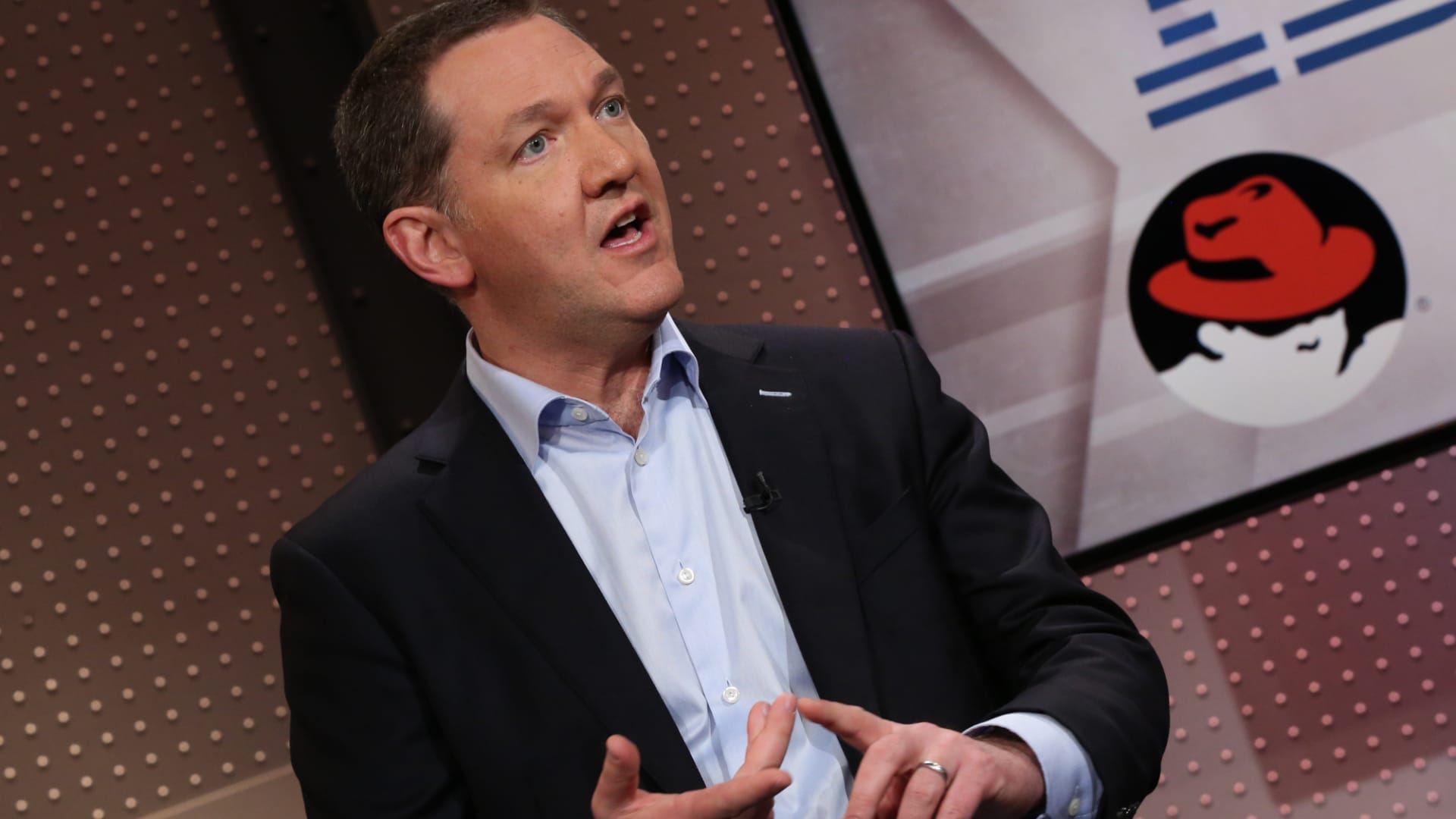Jim Whitehurst, CEO of Redhat.
Adam Jeffery | CNBC
Unity Software shares fell as much as 15% in extended trading on Thursday after the video-game engine maker reported a third-quarter revenue miss and refrained from issuing guidance.
Here’s how the company did:
- Earnings: Loss of 32 cents per share
- Revenue: $544.2 million vs. $553.7 million as expected by analysts, according to LSEG, formerly known as Refinitiv
The company’s revenue grew about 69% year over year, mainly thanks to the $2.9 billion acquisition of mobile advertising company ironSource, according to a regulatory filing. The $124.1 million net loss narrowed from $250.0 million in the year-ago quarter.
“Our results in the third quarter were mixed,” Unity said in a letter to shareholders. “While revenue came in within guidance, we believe we can do better.”
The Create Solutions segment, which includes game-development tools, generated $189 million in revenue, declining slightly and below the $204.7 million consensus among analysts polled by StreetAccount. Lower revenue from China was a factor because of the country’s continued limits on gaming.
In September, Unity announced new fees based on the number of people who install games built with Unity’s editor software, prompting an outcry that hurt the stock in the following days. The company apologized and revamped its plans based on feedback, and on Oct. 9, Unity said CEO John Riccitiello was retiring, effective immediately, with former Red Hat CEO Jim Whitehurst stepping in as interim chief. The new fees go into effect at the beginning of 2024.
“While we did not expect the introduction of the fees to be easy, the execution created friction with our customers and near-term headwinds,” Unity said in the letter. “We expect the impact of this business model change to have minimal benefit in 2024 and ramp from there as customers adopt our new releases.”
Unity’s Grow Solutions segment, which includes game publishing and advertising, contributed $355.3 million in revenue, up nearly $166% and higher than the StreetAccount consensus of $345.3 million. Pressure stemming from the new fees cut into the division’s results.
Management has been trying to figure out how best to charge clients for its products and expect to implement a new plan this quarter, and the new strategy might involve discontinuations, layoffs and a reduction in office space. In May the company announced that it would cut 600 employees, or around 8% of its workforce.
Timing isn’t clear, and so the company isn’t giving guidance, according to the shareholder letter.
“A lot of people are grumpy about that,” Whitehurst said on a conference call with analysts.
Whitehurst sold Red Hat to IBM for $34 billion in 2019. He said he sees some parallels between Red Hat and Unity, including market leadership and revenue growth. One analyst asked on the call about whether Whitehurst would stick around as permanent CEO. The board is conducting a search, Whitehurst said.
Changes to the business will be done by the end of the first quarter of 2024, said Luis Felipe Visoso, Unity’s finance chief.
Notwithstanding Thursday’s move, Unity shares are down about 12% this year, while the S&P 500 index has gained 13%.
Image and article originally from www.cnbc.com. Read the original article here.

